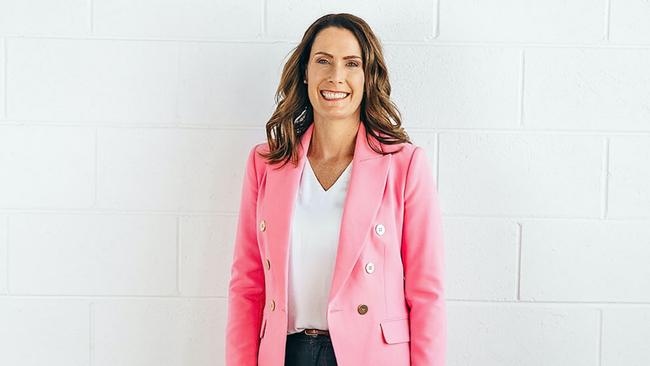Good money habits taught to children will last a lifetime
Parents and grandparents can help deliver a bright financial future for children by instilling these habits early.
SmartDaily
Don't miss out on the headlines from SmartDaily. Followed categories will be added to My News.
Children today often face bigger money challenges than their parents and grandparents did – sometimes before they even spend a cent.
The days of cash pocket money or stashing coins in jars and piggybanks are being rapidly replaced by tap-and-go spending, mobile payments and online banking, making it trickier to learn money management skills.
While new technology is here to stay, so are some good old and timeless money management habits, and parents are being urged to instil these as early as possible.
Mindful Finances founder Suzanne Alexander says people form money beliefs before the age of six.
“Children are absorbing money habits through what they see, hear, witness and are taught,” she says.

Think back to when you were growing up. Were you often told “money doesn’t grow on trees” or “you have to work hard for your money”? Alexander says children will view money more positively if instead told “money enables choices, money allows us to enjoy experiences together, making money is fun”.
DIGITAL DILEMMA
Money specialists have differing views about whether parents should fully embrace digital finance or should bring physical cash back into households after the pandemic accelerated the cashless trend.
Alexander suggests paying using actual money where possible, because studies have shown people feel less loss when paying with a card instead of cash, so it can be tempting to spend more.
“If children are observing you purchasing online, consider explaining to them that money is involved and that money often needs to be earned to be able to be spent,” she says.
Alexander says parents can consider pocket money apps such as Spriggy, Rooster Money and HyperJar, but understand any costs associated with them.
Yish Koh, the managing director of new children’s money app Kit, says “kids learn by doing”.
“Kit, which is currently in early access, is supported by CommBank,” Koh says.
She suggests giving children a prepaid or debit card to help them see and track spending.
LET THEM DECIDE
“Giving kids autonomy, with your oversight, builds confidence and independence,” Koh says.
“Making decisions is a critical part of their learning … there’s no doubt your kids will make mistakes with their finances along the way.
“Although these moments can be difficult and as a parent you may want to quickly brush it off or fix it up for yourself, these are great teachable moments and opportunities to openly discuss money matters.”
CELEBRATE WINS
Achieving goals motivates future success, and Koh says goals also help encourage a savings mindset.
“A great way to help conceptualise saving is by setting a goal with your child,” she says.

“For instance, it could be saving to buy a game they want. By having a goal, your child can start to understand how long it will take to afford their goal.”
Don’t forget to celebrate. “By celebrating when your kid hits a savings milestone, this sense of achievement will help them to understand the positive outcome of this and drive them forward to repeat the action,” Koh says.
Alexander says understand what brings joy and happiness to your children.
NEEDS, WANTS AND INVESTMENTS
Understanding the different between a need and a want is important, Alexander says.
“A need is anything to do with survival – for example shelter, food and water,” she says.
“A want is a nice-to-have item – something you can live without.”
Good investment habits can be one of the most powerful money-making skills any child can learn.
“Even if you aren’t in a position to have investments, most people will have superannuation – which is actually an investment – and so you can talk about how money is deposited and invested, and over time the expectation is the investments will grow,” Alexander says.
LESSONS FROM LIVING
Everyday spending can help teach children about money, says ASIC’s moneysmart.gov.au service:
• When shopping, compare prices for similar items to discover the best value.
• Explain that tap and pay uses money in your bank account.
• Show children an electricity or phone bill and explain how many days you had to work to pay it.
More Coverage
Originally published as Good money habits taught to children will last a lifetime





